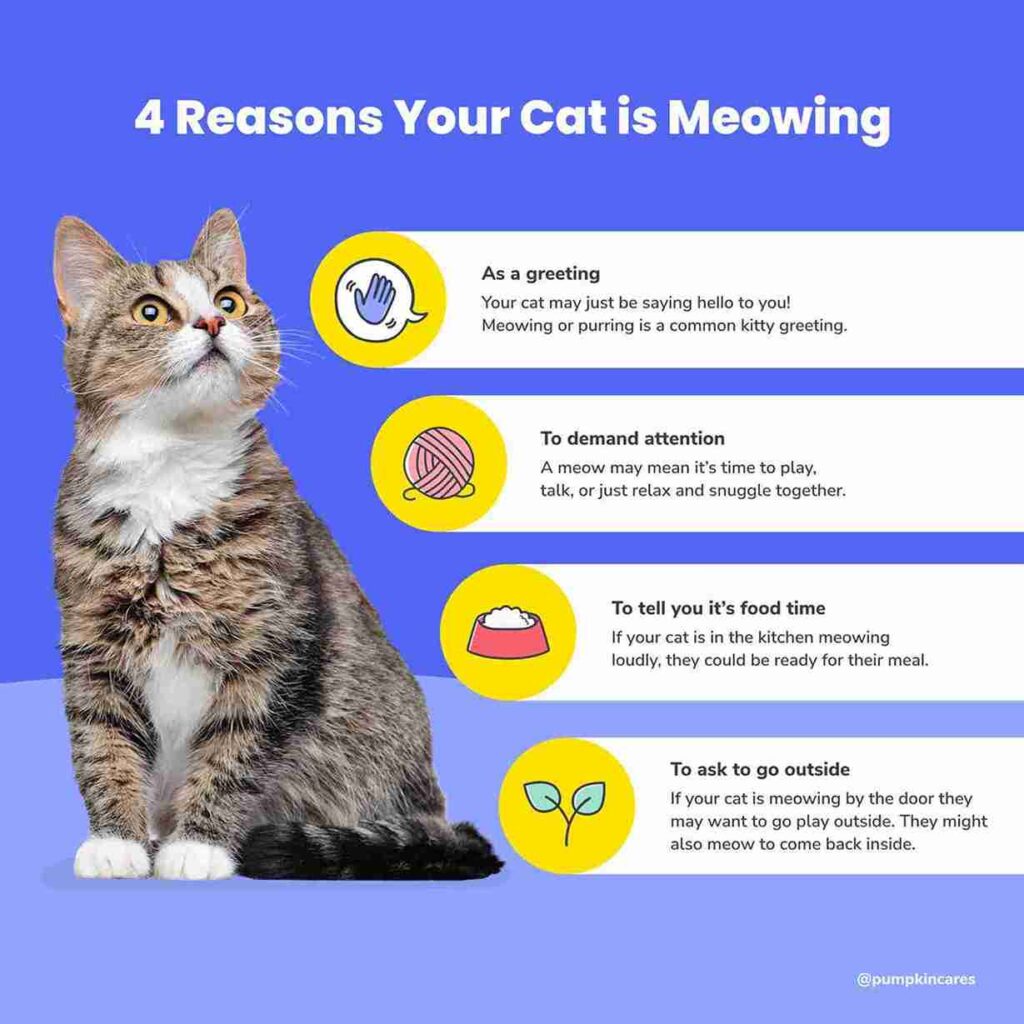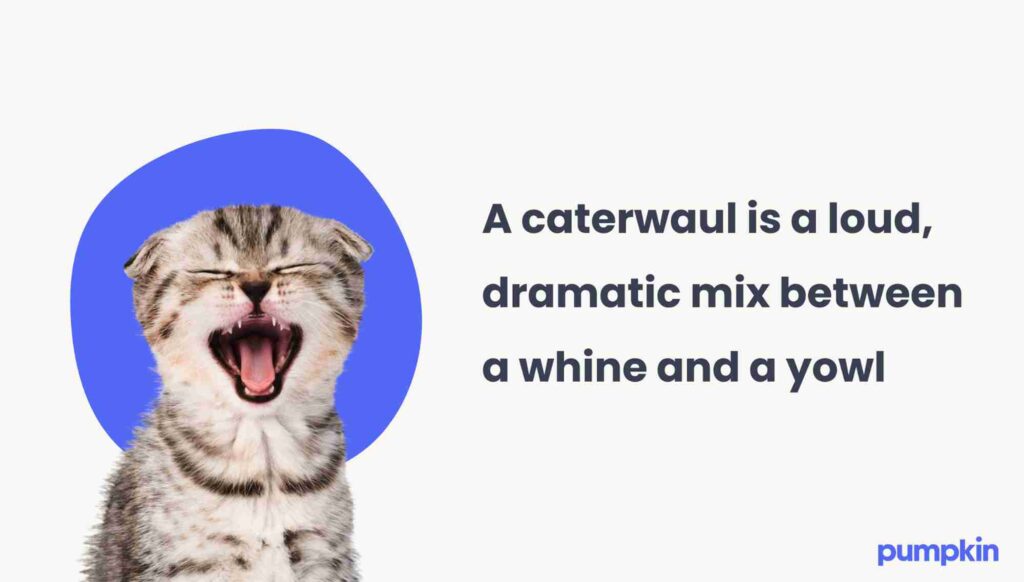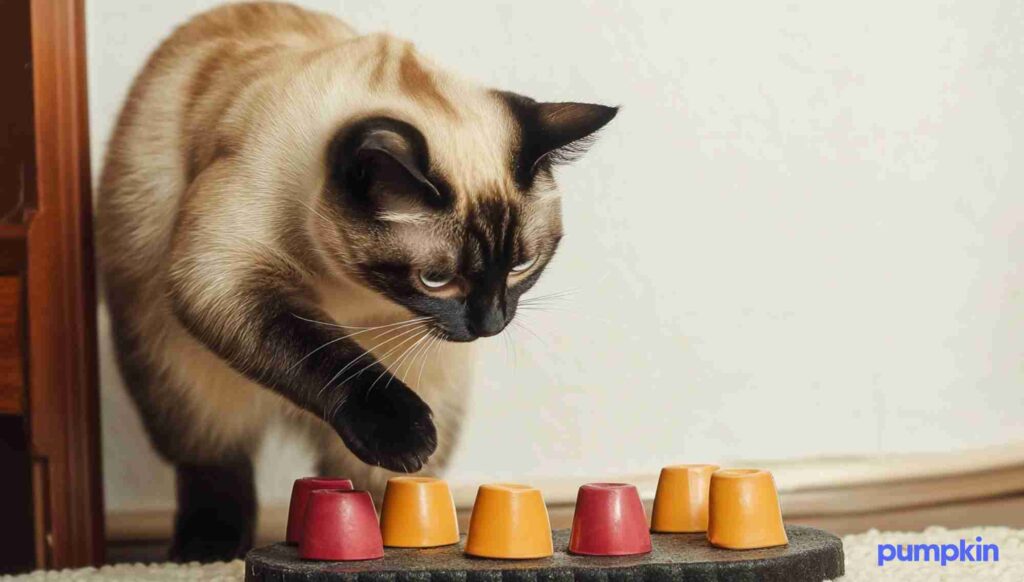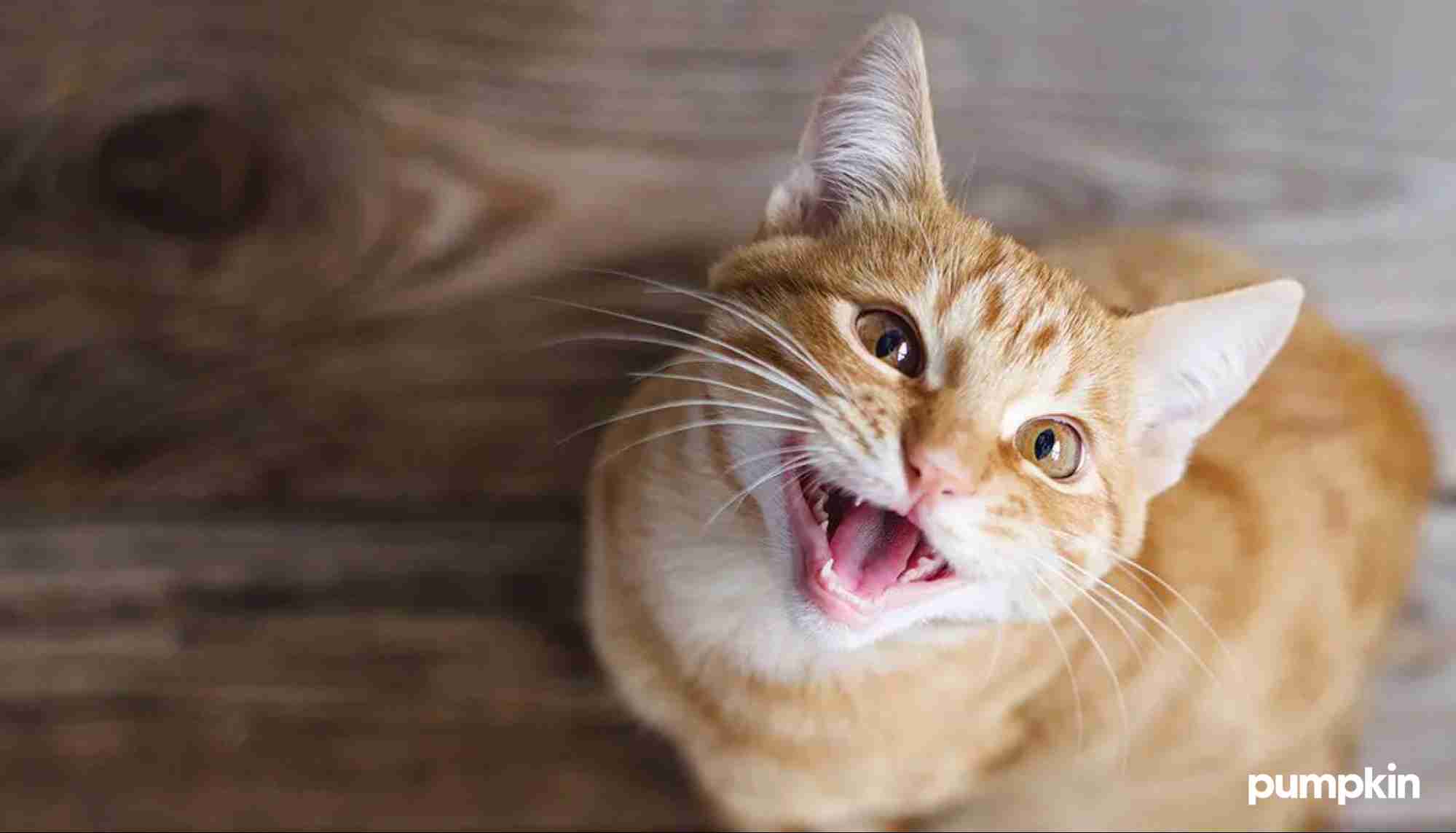Key Points
- Cats meow to greet people, demand attention, ask for food, and request to be let inside or outside.
- Excessive cat meowing can be a sign that your cat is experiencing an underlying issue, such as a UTI.
- If your cat is meowing excessively, take them to the vet to determine if the cause is medical or behavioral.
Our cats are often the (self-appointed) kings and queens of the household, with all the dignity and aloofness that comes with that title. And yet, some of our kitties can be major meowers. It can be confusing when your cat won’t stop howling at you. Are they trying to boss you (their servant) around? Or are they just trying to chat?
In short, a cat’s meow is their way of communicating with people. Whether they’re meowing, howling, or wailing, this is their way of expressing their feelings and needs. While this can sometimes be annoying, our feline friends meow to say hello, ask for delicious cat food, or tell us that something is wrong.
So if you’re wondering, “Why does my cat meow so much?”, let’s dive into all the reasons your kitty may be yammering at you, and when their meowing may turn from normal to excessive.
Common reasons why cats meow
Cats learn to communicate with us just like we learn to communicate with them. Your cat may have learned that if they meow, people will talk back to them, play with them, or feed them. If your cat is meowing more than you’d like, try to figure out the cause first. Once you know the reason, you can work on getting them to meow less.
These are the most common reasons cats meow:
1. To greet you
Has your cat ever greeted you at the door after a long day? This is their way of saying hello, and they’ll most likely begin meowing and purring at you.
2. To demand attention
Some cats enjoy social interaction just as much as humans do. They’ll often meow to indicate they want to be stroked, played with, or simply talked to. If your cat is left alone for long periods of time, they may even become more likely to meow for attention.
3. To ask for food
Cats like to eat, and they can be quite demanding when they know it’s dinner time. Cats are intuitive animals, and may even learn to meow whenever anyone enters the kitchen.
4. To ask to be let in/out
If your cat needs to go outside, they’ll likely learn to meow at the door. When they’re ready to come back in, they’ll meow again.

Why does my cat meow at me?
Some cats simply like to hear their own voice, while others seem to want to carry on a conversation with their owner. The more you enable this type of cat behavior, the more your cat will meow.
Kitties are smart and they may vocalize because they’ve learned that you’ll respond to the sound and meet their needs. In classic cat behavior, they can “train” us in this way through their meowing, even changing the tone and frequency of their yaps to create a unique language with you.
Interestingly enough, when cats grow out of kittenhood, they no longer meow to other cats. Instead, they use other vocalizations — such as yowling, hissing, and growling — to communicate with each other.
As you probably know, most cats will outlast you with the chatter in the hopes you’ll give in to their meowing demands.
Why is my cat meowing at the door?
If you notice your cat meowing at the door quite frequently, they may be asking to be let inside or outside. They’ve likely learned that this noise signals you to help them out. This behavior may ramp up when they’re transitioning from being an outdoor to an indoor cat. In fact, they may take months to stop meowing at the door in this case.
Why does my cat meow so much in the morning?
If you’re asking yourself this because your cat’s meow has replaced your morning alarm, it’s possible your kitty is just saying good morning. Especially if they sleep away from you at night, they may just be expressing loneliness and a need for attention.
But more than likely, your cat just wants their breakfast (or water). As mentioned above, they may have even “trained” you to feed them when they yowl at you. You can help redirect this behavior by getting your cat an automatic feeder, which will lead them to meow at the device instead of you.
Why does my cat meow so much at night?
Your cat meowing so much at night could be caterwauling. This sound — which sounds like a mixture of a whine and yowl — is more impactful than a regular meow, and means that your kitty is trying to tell you something.
Excessive nighttime caterwauling could mean your cat is feeling unsure about a change that occurred recently, whether it’s a move or a change in their daily routine, so they’re expressing their feelings at night.

To help curb caterwauling, give your cat a little extra love before bedtime, after making sure all their needs are met. But only do so before they’ve started meowing, or you may teach them that excessive meowing earns them attention.
You can also try to tire your kitty out more during the day so that they sleep better at night. Then when it’s time for bed, create a calm and comfortable environment by making sure they’re warm and playing relaxing music.
Excessive meowing in cats
Vocalization is normal since it’s the way cats communicate with each other and with us. But, there is a difference between a cat meowing loudly for breakfast and a cat constantly meowing in the middle of the night for no apparent reason. Ultimately, excessive meowing is subjective — but you know it when you hear it.
It’s important to note that the amount of normal meowing can vary among different cat breeds. For instance, Siamese cats are known to be great talkers, and Sphynx cats are known to be extremely chatty and demanding when they set their minds to it.
However, it may get to a point where you feel your kitty is communicating a lot. What’s considered to be excessive vocalization depends on the tolerance level of the pet owner, as well as the perceived reason for the vocalization. Increases in vocalization are common when there are changes in the household, such as moving to a new place or a new addition to the family, like introducing a new kitten or a baby.
But beyond these instances, there may be a few specific reasons your cat meows so much. Below are the answers to cat owners’ most common questions when it comes to their cats’ chat.
How do you treat excessive vocalization?
Even if your cat has a history of meowing excessively to demand their food, you should still take them to the veterinarian just to be safe. You want to rule out any illness or underlying medical condition and get recommendations to curb their excessive meowing.
If your vet determines the cause of their repeated meowing isn’t medical, they will try to figure out why your cat is seeking more attention. They may be bored and require more stimulation and physical activity. In this case, develop a daily routine that provides your cat with a variety of social activities, focusing on when and where your pet is most likely to meow. In general, make sure to schedule playtime or a stimulating training activity before the problem arises.
What not to do if your cat is meowing excessively
If you’re providing your cat with enough mental and physical stimulation and they’re still meowing excessively, you should never:
Ignore your cat. Although you don’t want to reward their excessive meowing, they’re most likely meowing for a reason. They may not be able to reach their litter box, their food or water bowl could be empty, or they could be trapped somewhere uncomfortable. Be sure to check on them to determine if their meowing is something you can safely ignore, or if there’s a problem that needs to be solved.
Punish your cat. Hitting, shouting, or spraying cats with water rarely quiets a meowing cat, and these actions can make your cat distrust you.
Give in to your cat. If your cat is used to getting whatever they want from meowing, giving in will only cause them to meow louder and more frequently. Continue to reward quiet behavior, and soon enough they will get the idea.

When to take your meowing cat to the veterinarian
If you have a cat who’s meowing excessively, take them to a veterinarian so a proper diagnosis can be made. While excessive vocalization can be a ploy for attention, it can also indicate:
- UTI
- Aggression
- Pain
- Neurological problems
- Sensory deficits (such as hearing or vision loss)
- Anxiety
- Frustration
- Cognitive dysfunction
- Other cat behavioral problems
Numerous diseases can cause cats to feel unusually hungry, thirsty, restless, or irritable, which will likely prompt excessive meowing. As cats age, they’re prone to developing overactive thyroid and kidney disease, which may result in excessive meowing. Older cats suffering from mental confusion or cognitive dysfunction may meow if they become disoriented, which can sometimes be a manifestation of Alzheimer’s Disease.
Get to the root of your cat’s meow
Before attempting to curb your cat’s meowing, be sure to speak to your veterinarian to determine if their meowing is an attention-seeking habit or a bigger problem. As solitary as cats may be, they do like to play and be challenged, so mental and physical enrichment may be a good way to quiet them down. If they’re too tired to meow, they might even let you sleep through the night, too.
Excessive meowing can be a sign of sudden pain or illness. When unexpected illnesses pop up, a pet insurance plan can keep the focus off your wallet and on your cat’s health. Find out how Pumpkin cat insurance plans can help cover your kitty’s eligible vet bills in the future.
- https://www.aspca.org/pet-care/cat-care/common-cat-behavior-issues/meowing-and-yowling
- https://catfriendly.com/why-does-my-cat/meow/
- https://www.animalhumanesociety.org/resource/transitioning-outdoor-cat-indoor-life
- https://vcahospitals.com/know-your-pet/the-cats-meow-caterwauling-in-cats
- https://www.humanesociety.org/resources/understanding-feline-language
- https://www.merckvetmanual.com/cat-owners/brain-spinal-cord-and-nerve-disorders-of-cats/congenital-and-inherited-disorders-of-the-nervous-system-in-cats#Forebrain-Disorders_v3245809
- https://www.aspca.org/pet-care/cat-care/common-cat-behavior-issues/meowing-and-yowling




